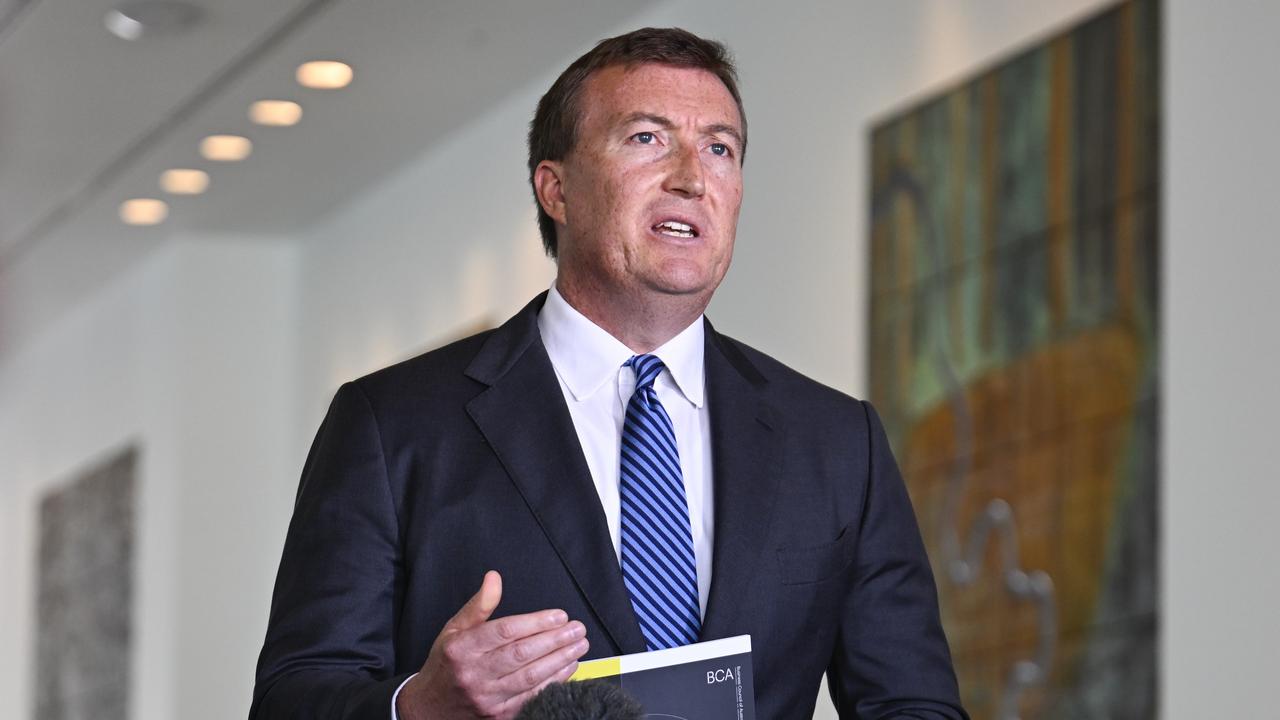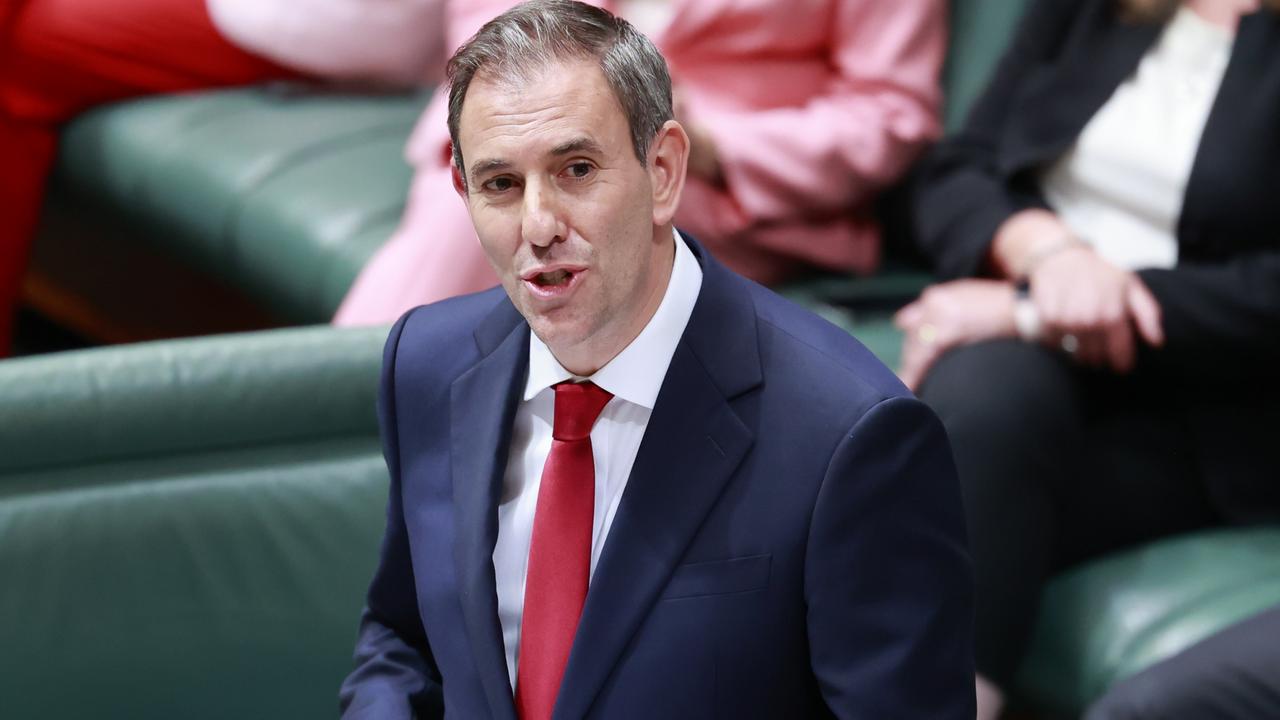Scandals to test NACC threshold
Legal experts have given their views on whether a series of recent integrity scandals could meet the threshold for investigation by the proposed national anti-corruption body.

Legal experts have given their views on whether a series of recent integrity scandals could meet the threshold for investigation by the proposed National Anti-Corruption Commission (NACC).
The Australian has sampled the views of Centre for Public Integrity chairman Anthony Whealy, the counsel assisting in several former ICAC inquiries Geoffrey Watson, and the Australian Lawyers Alliance criminal justice spokesman
Greg Barns.
Sports rorts
The distribution of grants under the Community Sport Infrastructure Program by the office of the then sports minister Bridget McKenzie.
Experts’ verdict: Likely. Mr Watson said the allocation of grants to groups through the use of a colour-coded spreadsheet detailing the seats they were located in “contradicted public trust” and would be investigated.
“One of criteria making something worthy of investigation is whether it was systemic, and that level of organisational criteria suggests it was,” Mr Watson said.
“If they (grants allocated) were all for example for political purposes that is an obvious arguable breach.”
Mr Whealy said while the commission could look into the scandal, the investigation “wouldn’t necessarily lead to an adverse outcome”.
“You would only have that type of offence committed where expenditure of money was done primarily or solely for political advantage,” he said.
“That’s pretty hard to prove.”
Mr Barns said state anti-corruption commissions had “shied away” from investigating pork barrelling, but there had been “a change” in attitudes and an investigation by the NACC could not be ruled out.
Leppington Triangle
The purchase by the commonwealth of Leppington Triangle in western Sydney for $33m – more than 10 times what the land was worth.
Experts’ verdict: Unlikely. Mr Whealy and Mr Watson said it would be a “difficult case” for the commission to consider.
“I don’t think it could be investigated under this new legislation unless there was clear suggestion a public official involved was corrupt,” Mr Whealy said.
Mr Watson said the commission would be more likely to investigate if there was a clear complaint that alleged “one of the decision-makers was related to or had a friendship with one of the people who received money”.
Mr Barns had a different view, saying that “you might get an investigation”. “A lot of work in anti-corruption commissions around Australia have been around land and planning.”
AAT appointments
The appointments of former MPs or political staffers to the Administrative Appeals Tribunal.
Experts’ verdict: No. Mr Whealy said the current scope of the NACC wasn’t “wide enough” to capture such appointments, which were a matter of ministerial discretion.
“Even a personal relationship wouldn’t necessarily be corrupt conduct, but maybe a breach in a ministerial code,” he said.
Mr Watson said he didn’t think the NACC would investigate the appointments, but argued that could change over time if community attitudes changed.
“At the present moment, I would regard that (AAT appointments) as outside of the purview of the commission,” Mr Watson said.
“It seems to be more or less the discretion of the executive to make those appointments. If there was, however, shown to be a continuing slant on appointments for political purposes or personal connections, then maybe it would be captured.
“But as we understand it at the moment this is outside the commission’s purview.”
NDIS fraud
The defrauding of the National Disability Insurance Scheme.
Experts’ verdict: No. All three experts said the rorting of the NDIS by dodgy operators would not be within the remit of the NACC.
Labor has pledged to crack down on NDIS scams estimated to have cost taxpayers’ more than $1bn through inflated invoices, false bookings or invoices made with false information.
Mr Barns said that unless there were clear cases of public officials working for the scheme being bribed, this kind of fraud was a criminal offence and not corruption.
“Here we’re talking about a case of traditional fraud dealt with under criminal law,” he said.
Mr Watson said he thought the fact the NACC would likely not investigate was a weakness of the model.
“(It should be) sufficient when someone is doing something that leads to a bad public sector decision, even if all public sector officials were acting honestly and innocently,” he said.
“This act doesn’t get that. It’s a weak part of the model.”
Mr Whealy expressed concern that attempts to defraud government programs would be left for the police to investigate.
He argued the police did “not have the power” to effectively investigate the rorting of the NDIS.
Code of conduct
Possible breaches of the Ministerial Code of Conduct by Labor MPs.
Experts’ verdict: No. While numerous ministers have been accused of breaching Anthony Albanese’s updated ministerial code of conduct – (which bans ministers from holding shares in public and private companies) – the three legal experts suggested this was not serious enough to be investigated by the NACC.
Mr Barns said this kind of conduct often came down to “sloppy administration” where ministers hadn’t adequately “cleaned up their backyards”.
“Unless there was some intent there, where you could prove the minister hung onto these shares to profit in some way, then no,” he said.
Mr Whealy said breaches of code of conduct would not be captured. “The code of conduct should be examined by parliament and left for parliament to determine,” he said.
Mr Watson said: “If a breach of the code of conduct was also an act of corruption … For instance, someone who is privy to confidential information provides it for personal gain to a third party then perhaps (it would be investigated).
“But the primary act must be corruption,” he said.
Porter rape allegations
The historical rape allegations against former attorney-general, Christian Porter.
Experts’ verdict: No. All experts agreed that, unless sexual harassment or intimidation were being done for some political or financial gain by a public official, allegations such as those against Mr Porter – which he denied – would not be captured.



